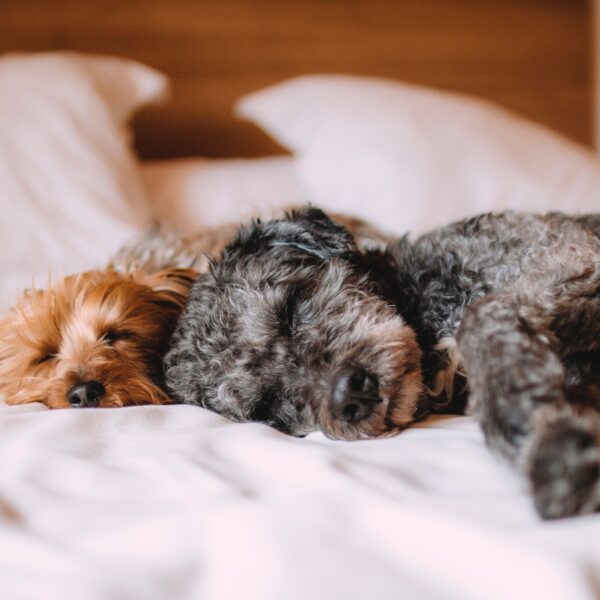Onions, along with their close relatives of garlic, leeks and chives, have become well-loved staples in our diet. But are onions OK for dogs? The answer is quite simply no – all of the plants in the onion family are poisonous to our canine friends. Read on to find out more about dogs and onions.
Can dogs eat onions in any form?
We know that raw onions are poisonous to dogs, but are cooked onions OK? Unfortunately not: all members of the Allium family (onions, leeks, garlic and chives) are poisonous to dogs in all their forms. Bear in mind that this includes dried and powdered ingredients – powdered onion or garlic is often used in stock cubes, so be sure to keep your dog away from any food made with these products.
Why dogs can’t eat onions
The reason why dogs can’t eat onions is that these plants contain chemicals that cause damage to the dog’s red blood cells. This damage makes the cells more fragile and likely to burst. Since red blood cells are essential for transporting oxygen round the body, a lack of these cells can cause the body’s vital organs to struggle.

How toxic are onions for dogs?
The damage to the red blood cells can be so severe that onion poisoning can be fatal for dogs. In general, the severity of the signs depends on how much onion your dog eats.
In terms of quantities, as little as 15g of onions per kg of a dog’s bodyweight has been found to cause significant toxicity. This means that only a very small amount of onion can be dangerous for dogs, particularly small dogs. So it’s safest to keep dogs and onions well away from each other.
What are the signs of onion poisoning in dogs?
The signs of onion poisoning depend on how much the dog has eaten. Often, the first signs are gastrointestinal upset:
- Vomiting, diarrhoea and inappetence
- Abdominal pain
- Depression
Dogs who have eaten a larger amount of onions may then develop signs relating to a lack of red blood cells (anaemia). These symptoms make take a few days to develop and they include:
- Weakness
- Pale gums
- Panting and increased breathing effort
- Increased heart rate
- Red urine (due to haemoglobin from ruptured red blood cells)
What should I do if my dog has eaten onions?
If you suspect your dog has eaten onions or any other plant from the Allium family, the first thing to do is to call your vet. If your dog ate onions relatively recently, your vet may advise you to come down to the surgery straight away so they can give an injection to make your dog sick and remove the onions from their system.
If you didn’t happen to catch your dog eating the onion, you may only notice there is a problem when your pet starts showing the signs described above. In this case, again call your vet and they will be able to advise you on what’s best to do. Your dog may need to be hospitalised on supportive treatment if they are unwell, and in very severe cases a blood transfusion may be required. Onion poisoning can be fatal, so it’s best to take your dog down to the vet quickly to make sure they’re in the safest possible hands.

How to avoid onion poisoning in dogs
So, how can you make sure that dogs and onions never meet? Firstly, be sure to keep your pooch away from these plants in the house and garden. If you grow onions, it’s worth fencing these off from inquisitive paws.
Remember that onions are used in many different recipes, so if you feed your dog table scraps, be sure to check the ingredients of your meal carefully. Many stews, sauces and soups will have onion or garlic as an ingredient. As a rule, it’s safest to feed food and treats designed specially for dogs.
We hope this was a useful guide to dogs and onions! Take a look at our other feeding articles here.


